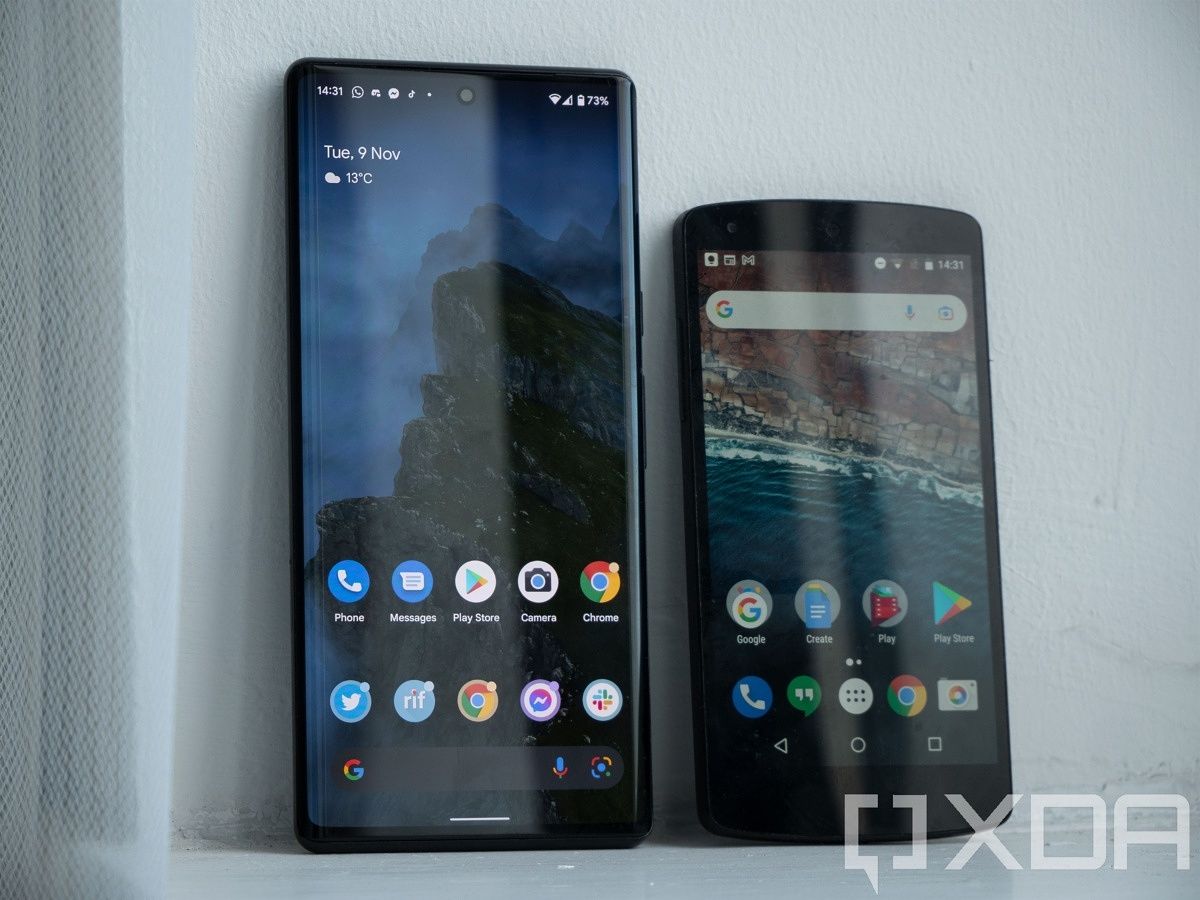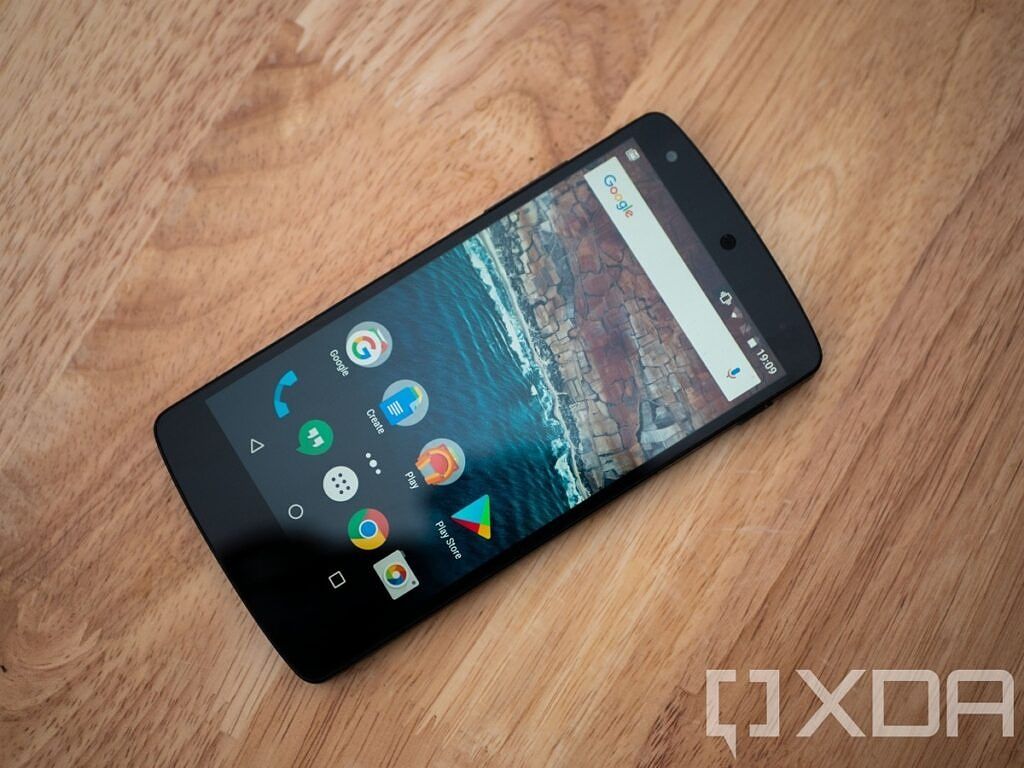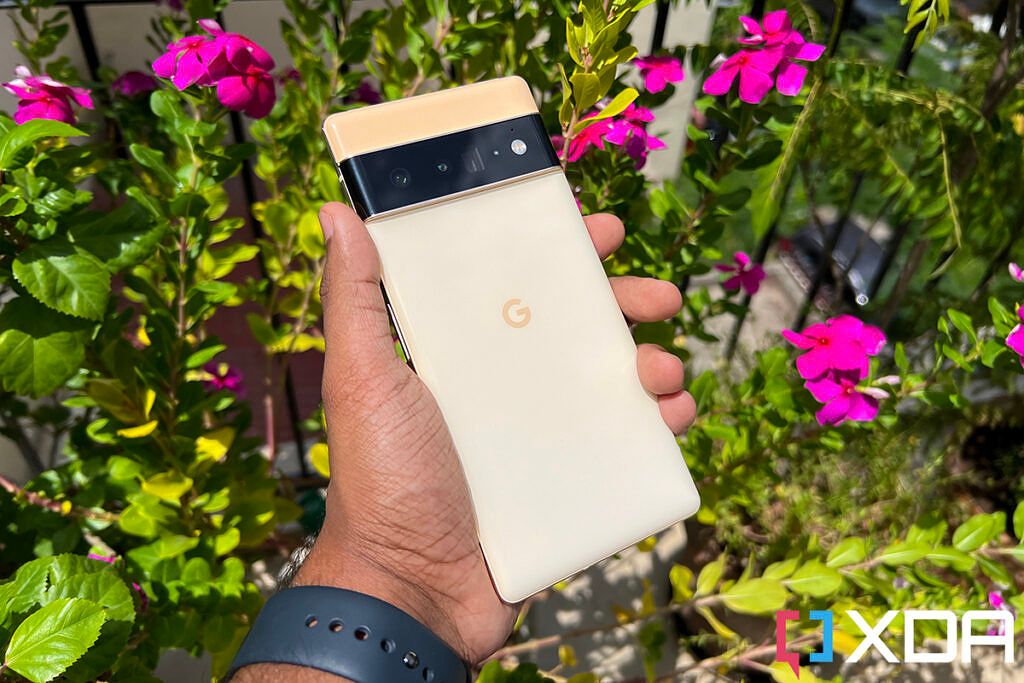If you've been following Android smartphones for a long time, you may remember the Nexus line from Google. Consisting of both smartphones and tablets, it was the definitive lineup of devices for enthusiasts and developers alike. I had the Google Nexus 5, and there were only a handful of Nexus devices released after that before the company transitioned over to the Pixel line instead. However, that transition was more than just a name change. Moving from Nexus to Pixel entirely reinvented Google's smartphone business. With the Google Pixel 7 series around the corner and with it, the anniversary of the Pixel series, we thought it apt to reminisce on just how much the Pixel series changed Google's trajectory in smartphones.
Shifting from developers to consumers
Previously, Nexus smartphones were generally seen as developer reference devices -- a pretty clean base that anyone can use to get to grips with Android development. That didn't stop enthusiasts from buying them too of course, but there wasn't really a mainstream appeal to be had. Google didn't really market these devices either, nor did the company ever really include exclusive features. That all changed with the first Pixel smartphone.
For example, the Nexus 6P (made in tandem alongside Huawei) came with nothing all too special. It was a cool design with a decent camera, but it had nothing particularly special to write home about in the software department. Later came the Google Pixel, with the Assistant built-in to the OS (back then, it was included in Google Allo, of all places), a new Pixel Launcher, and a much-improved camera -- the best in a Google smartphone yet.
Since then, Google has gone all-in on ambient computation, exclusive software features, and even marketing. None of what the company does now with the Pixel line would have ever happened as part of Nexus. Now Playing, a fun feature that's absolutely aimed at the masses would have had no place on a developer device. Previously, any features that launched on a Nexus were typical features that were a part of AOSP and any manufacturer could incorporate them. With the Pixel, though, Google went from creating devices for a niche to being a competitor against many of the OEMs it provides a software base.
Cameras, the Pixel Visual Core, and laying the groundwork for Tensor
If there was one particular feature of the Pixel lineup that made no sense on the Nexus series, it's the camera. Google made massive strides in smartphone photography with the Pixel series, something that is aimed a lot more at the mainstream than anything else. With doubled-down efforts and the introduction of the Pixel Visual Core as well with the Pixel 2, Google's efforts far eclipsed anything that it had ever done with the Nexus line. Even now, with Tensor being a joint Samsung and Google effort, it's clear that the company's first foray into custom silicon led the Pixel series down the path that we're on today.
As for Nexus, the treatment it faced from Google was completely incompatible with the mainstream masses versus competitors. It was never going to work in the state that it was in if Google wanted it to be launched on carriers with wider appeal, such as in the case of the Pixel lineup. Everything started from the ground up after the Nexus, and the company's approach to the Pixel lineup may as well have been its first-ever foray into smartphones in general.
All of this is to say that Google's trajectory with the Pixel lineup has followed a pathway that could never have existed with the Nexus -- at least not in the state that it was. I believe that the company had plans to try and do what it did with Pixels in the Nexus series at some point (given that its HDR+ algorithm actually debuted there, and not on the Pixel lineup), but I think that it realized that the vision it had for its smartphones was incompatible with the Nexus branding at that point in time. The Galaxy Nexus was probably the last Nexus phone with mainstream appeal given that it was manufactured by Samsung and actually launched on carriers.
Could we see the Nexus revived?
It's hard to say whether we'll ever see the Nexus brand revived, but I think that if we do, it won't ever be in smartphones again. Google was clearly going for something different with its smartphone division for a while, and I think that the re-introduction of a Nexus phone would muddy the waters a bit. However, could it work for developer-oriented devices? Almost certainly. After all, we did get a Nexus Player which essentially predated the Chromecast with Google TV. Nexus wasn't just phones and tablets.
Nevertheless, the transition from the Nexus to Pixels entirely reinvented Google's overall smartphone strategy. It turned it from just a software provider with devices for reference to an all-out competitor in the space. Even if it's not the biggest or best OEM around, there is a small but growing set of consumers that use Pixel smartphones as their daily drivers that may never have done the same with a Nexus.
There's one thing for sure though: for anyone who wanted to buy a Google smartphone, it was definitely for the better. I loved the Nexus 5, but compared to the rest of the competition, it didn't do a whole lot. It was just a good, solid Android phone at a time when skins like TouchWiz reigned supreme. Nowadays, Pixels offer a lot, even when compared to the rest of the competition, and that's something that Google has been working toward for years.



